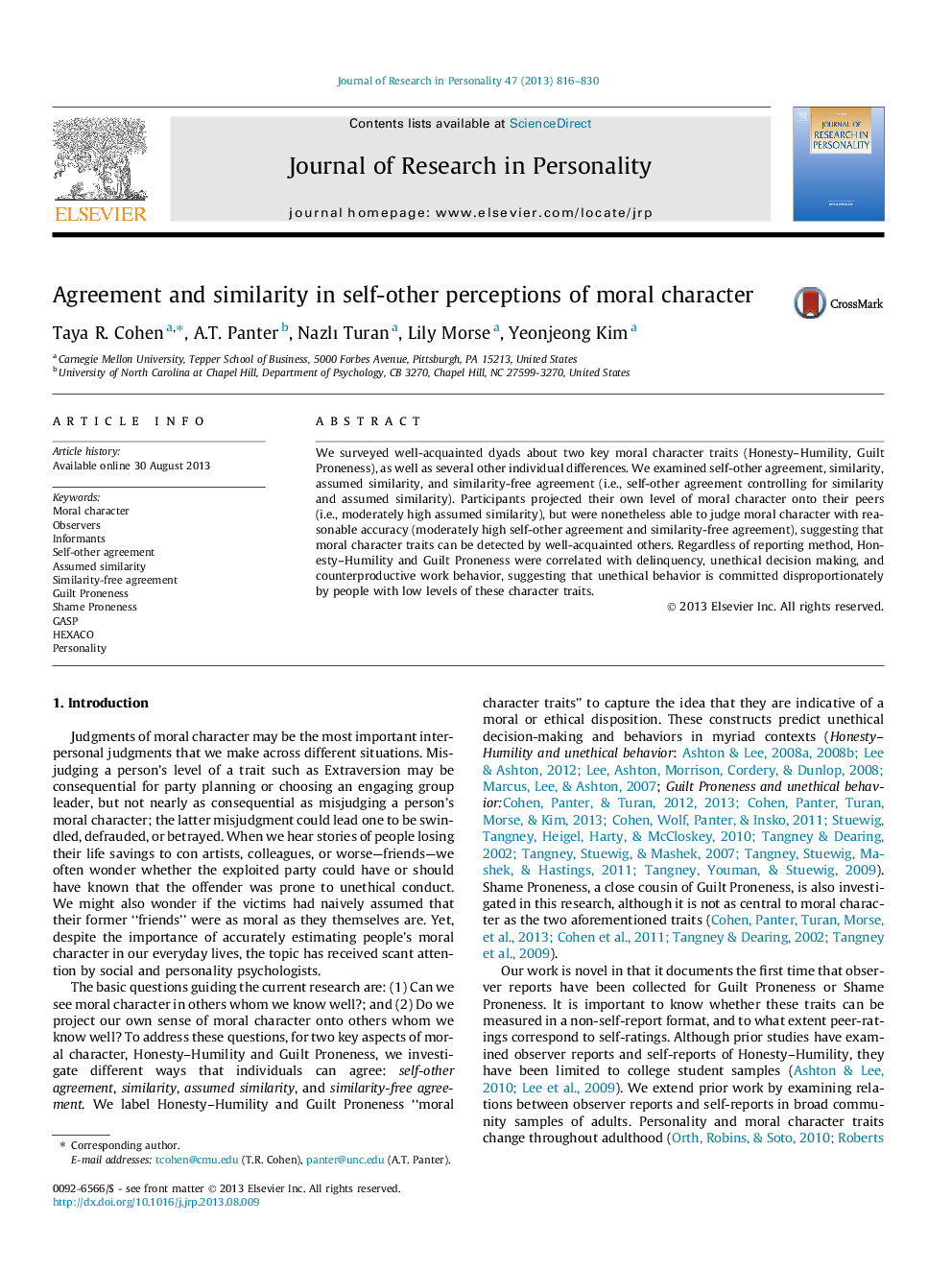| Article ID | Journal | Published Year | Pages | File Type |
|---|---|---|---|---|
| 951376 | Journal of Research in Personality | 2013 | 15 Pages |
•Honesty–Humility and Guilt Proneness are moral character traits.•Self-reports and observer reports of moral character predict unethical behavior.•Adults can judge moral character of well-acquainted peers with moderate accuracy.•Adults project their own level of moral character onto their peers.
We surveyed well-acquainted dyads about two key moral character traits (Honesty–Humility, Guilt Proneness), as well as several other individual differences. We examined self-other agreement, similarity, assumed similarity, and similarity-free agreement (i.e., self-other agreement controlling for similarity and assumed similarity). Participants projected their own level of moral character onto their peers (i.e., moderately high assumed similarity), but were nonetheless able to judge moral character with reasonable accuracy (moderately high self-other agreement and similarity-free agreement), suggesting that moral character traits can be detected by well-acquainted others. Regardless of reporting method, Honesty–Humility and Guilt Proneness were correlated with delinquency, unethical decision making, and counterproductive work behavior, suggesting that unethical behavior is committed disproportionately by people with low levels of these character traits.
